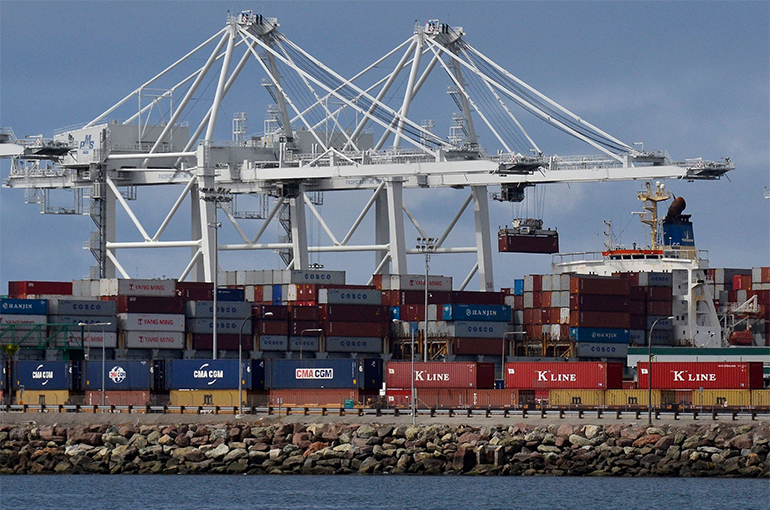 US Ports Reject Tariff on China-Made Cranes
US Ports Reject Tariff on China-Made Cranes(Yicai) July 3 -- Major port operators in the United States oppose the country’s proposed 25 percent tariff on cranes imported from China, amid concerns over increased costs and diminished competitiveness.
At least seven US ports have 35 ship-to-shore cranes on order from Chinese manufacturers, and the additional tariff would raise the cost by at least USD131 million, according to a statement released by the American Association of Port Authorities on July 1.
“Simply put, the AAPA is confident that the tariff, if imposed, will not meet its stated objectives,” said Cary Davis, head of the AAPA. “Instead, it will only result in negative outcomes, including grave harm to port efficiency and capacity, strained supply chains, increased consumer prices, and a weaker US economy.”
Other US ports expressed similar concerns in a joint letter to US Trade Representative Katherine Tai. “As we continue to seek to advance our own competitiveness against our international partners, including Mexico and Canada along the East Coast, this cost will translate to longer wait times and increased dwell times for visiting container ships,” wrote Barbara Melvin, head of South Carolina Ports.
“Ultimately, American consumers, manufacturers and exporters will bear the burden,” she pointed out.
Port Tampa Bay said it is unlikely American-made STS cranes will be available anytime soon. Germany and Finland produce a small amount of them, but they “source many of these components from China and Russia, making their products subject to the 25 percent tariff,” said Paul Anderson, its president and chief executive.
In February, the US government claimed that Chinese cranes posed a national security threat. It subsequently announced in May additional tariffs on about USD18 billion of Chinese products on top of the existing Section 301 levies, with port cranes subject to an increase of as much as 25 percent.
Claims of “China remotely controlling port cranes to collect data” are unfounded, Chinese foreign ministry spokesperson Mao Ning said in February.
China firmly opposes the US' generalization of the national security concept and the abuse of national power to unjustly suppress Chinese products and businesses, Mao said, adding that weaponizing economic and trade issues will only exacerbate security risks in the global supply chain.
Editor: Tom Litting